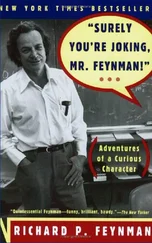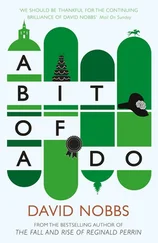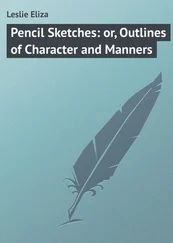I stop at a book now and then, leaf through its pages. Sit down and read before deciding where to place it. I debate how to arrange them, whether they should be done alphabetically, by size, by style, or some clever combination of it all. I take pleasure in whispering these questions to myself. He says, You whisper to yourself all the time. I never noticed it before. He wants to know what I say, I say it’s nothing, just words. Reassurances for myself.
Every now and then I go to take a sip of his beer. Sometimes I take a book of photography and sit with him, and we look through the images together then, I spend hours like this, with Araki, Prabuddha, Moriyama and Klein. With black-and-white photos of naked women he’s culled from magazines, Kate Moss and tribeswomen and Japanese girls bound in rope.
When I find a passage of text that I like I read it out to him. He never interrupts. He listens to me, tells me to speak and we get lost in it, in my own voice and in his listening to me. There are goosebumps on my arms and legs, the soft hairs stand on end. I come over to the sofa and climb into his lap, continue to read, watch his hands sliding over the tautness of my skin, dipping in. And all the time he continues to drink.
Then it happens that I forget him entirely. The performance stops and my work goes on. For an hour or more I lose myself so completely in the task and I’m the same girl I’ve ever been, the tongue poking out of the corner of my mouth, the same as I was when I was six years old, pensive, curious, not fit for the world.
When it’s over I stand back to admire my handiwork. And proud, calling out to him, turning around, I discover he’s passed out from the beer, twelve in total, one after the other without pause. And unable to keep control or wake, he’s pissed himself; there’s a wide dark patch on the sofa dripping to the floor between his legs.
Like my grandfather he is a godman. Like him, he has things to say. He speaks of Shiva to me, and I have become his disciple on the dusty road. Convincing, persuading, cajoling me. He gives his sermon as he speaks, of another future, of revolution in the villages, in the towns and cities, the revolution of technology, the Internet, new connections and networks. Revolution in India, this is how it will be: no war, no guns, only technology, this he truly believes. He tells me how these connections will occur, how the poor will see and hear, how there will be empowerment for all, how Shiva guides him, and of this world he will be the king.
Like my grandfather, who spoke in tongues. Who had the light of God in him, barefoot from town to dusty town. Who roamed the lands that are the future now, the townships and malls and garbage dumps.
He worked in a bank when he lived in the world, a shy, nervous man. He worked quietly there for years behind the metal grille, behind the screens in the back room, counting money, making copies of copies of forms by the crumbling yellow walls. And then every so often he would get up and start to walk.
Straight out of the door, across the fields to the horizon. He’d walk for days sometimes and sometimes weeks, give all his possessions away. Lose his clothes, find new ones, wear rags, not shave, grow his hair and his beard, get that desert look in his eyes. They’d find him beneath a banyan tree in a far town, holding forth with a crowd, giving sermons, reciting the Gita and the Upanishads by heart. From where he learned them no one knew. They seemed to have been carved on his heart with a blade.
At the start they went out to find him, to bring him back like a wayward teen. But every time he walked right out again. Soon enough they grew to indulge him, to leave him alone, they stopped searching, they washed their hands of him, they cursed him and sighed and said, Let it be his fate. He’d always wander back in the end, walk in through the door one day. Like everything, it was just allowed to go on. The bank kept his job for him. He’d go back there every time, turn up for work and no one would say anything, though it’s hard to believe. So there were two men in him, one hidden at home and one forever wandering the plains.

But it’s the history of women that’s the history of migration. Men hold the line and they remain. They go to war, they go for work, they travel the land, but they remain. Their name remains, their land remains. You can follow their line into the dark. How to trace the line of women, how to find from where we came? Every generation stripped away. Passed to another name. Gone the line and the name. They never belonged to us anyway. The earth doesn’t belong to us. We disappear, we do not remain.

When I left his apartment the day I learned of his death, Ali was alone a short distance away on the road, despondent, full of grief, his body hanging limp in the rain with his long fingers around his thighs as if he were preparing to be sick. I was halfway to my car before he saw me there and it was only then that he came to life, running after me and calling out, shouting, Madam, madam, please stop.
Ali is standing outside my car door, I can see him. He’s on the street, knocking on the window, trying the handle, saying something that I cannot hear. The rain has become heavier, bouncing off the front of the car, and his face is covered in tears, his eyes are red with crying and drink. He is begging me to please open up, to speak to him, to wind down the glass and open the door so he can speak to me, Please, madam, please. He is drenched, rain has dishevelled his hair, rain is dripping from the beak of his nose. And he is snivelling in a way that I cannot bear. He begs, he starts to slap the glass, struggles with the handle, his face is twisting out of shape. People on their balconies are watching. Guards are stepping out into the street. They know what this is about. From the balcony the fiancée is shouting, ordering Ali away. I can’t take it. Can’t look at him. I start the engine and drive.
I drive for hours. Numb, my whole body shivering, teeth chattering, an ashen face looking at itself in the mirror when it dares. I try to think of a place I can go, somewhere or someone to whom I can turn, a street where I can park without memory, some quiet colony where I can clear my head. But there is nothing, nowhere. Every time I stop, accusing faces look in at me. Maids and servants walking by, housewives and aunties, guards telling me to move. Through the blur of rain I can barely see the road.
At some point a calm descends. It comes at the limit of exhaustion, from something being extinguished. I turn the car around and I begin to drive home. On the way I stop one last time by the Purana Qila. I pull to the side here, take out the SIM card from my phone, bend it in two and throw it in the road.

We wait for the monsoon to break. The black clouds are gathering over Humayun’s Tomb, the kites ride the thermals above its domes. We run our hands over the sandstone walls, walk the boundaries of Nizamuddin. The morning is already swollen, in the middle of the day it dims, it might as well be dawn again the way the light drops out and the clouds roll in, cities themselves, blotting the sun.
Then the first big drops of rain descend. Plop, plop, plop. Bombs of rain one day, big as insects, splashing up the choking red dust, sending it into the atmosphere, trowelling nostrils in the thick cake of earth, and in the smell of wet tarmac rising up we rejoice. People have come out to stand in the streets, on to their balconies to soak themselves in it. We lie on his balcony as it turns to a deluge, as the drops grow together and the thunder cuts the air.
Читать дальше













